India Marney
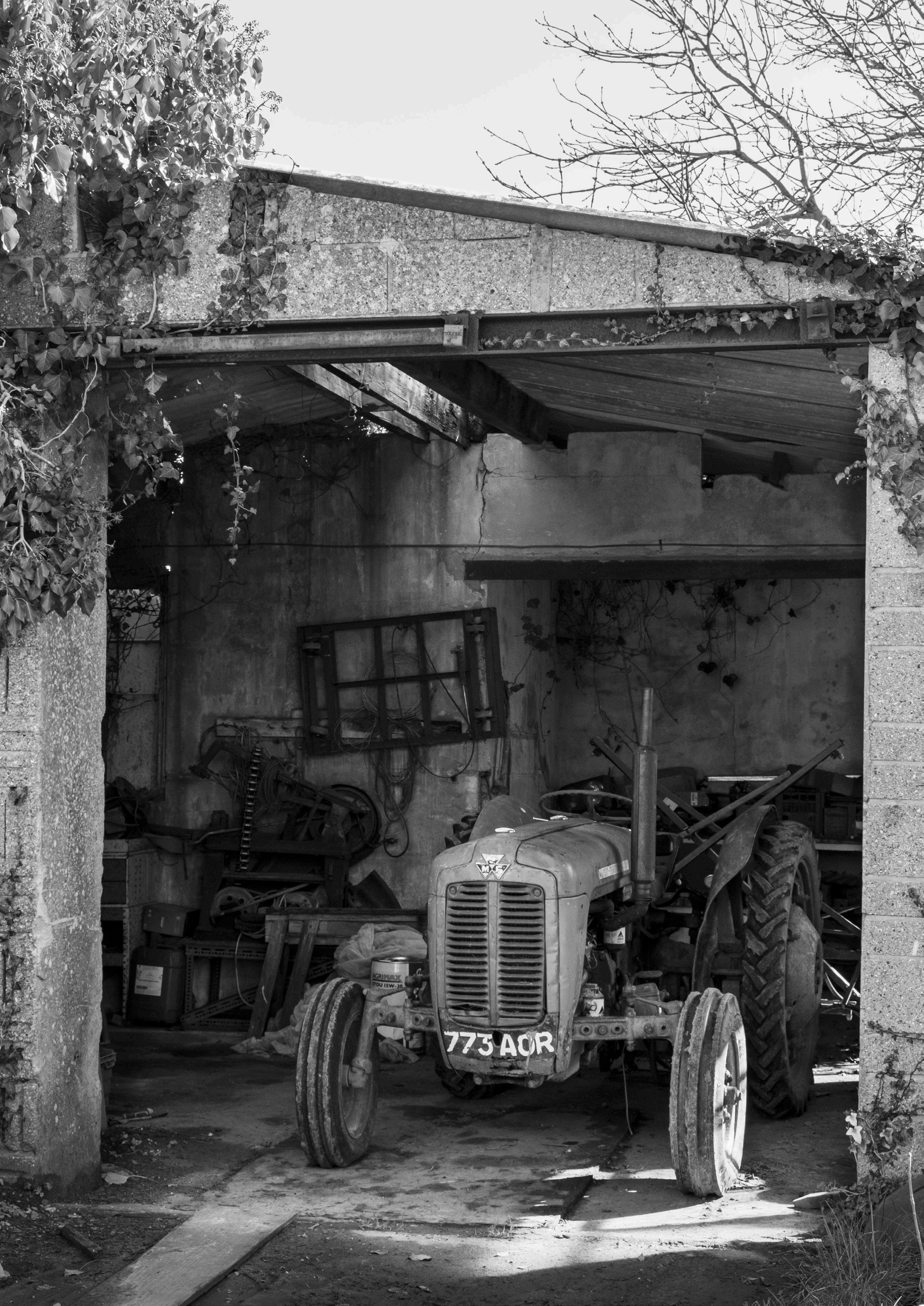
The landscape Jim grew up exploring has always called to him.
At just 15, he left school, choosing to dedicate his life to the outdoors.
His family have been managing the land at Berry Hill Farm for three generations, producing food for local people in Bournemouth and the surrounding areas.
Jims grandfather, Stanley, moved here in 1938 into a house built as part of the Homes for Heroes initiative, which provided housing for returning veterans from the First World War. The house they rented had a small plot of land attached where he kept chickens and grew vegetables to feed his family and sell to the local community.
Seasons passed, and Stanley continued slowly building up the business. He sold his produce to local markets and greengrocers, with support from his wife, Joyce. But, as his deteriorating health made it harder to tend the land on his own, Stanleys son, Ken, took on more work - leaving behind his career as a plumber to become a farmer. From 1970-1990 Ken acquired additional space from his neighbours as they stopped working the land due to difficulties of making a living from only a few acres. This allowed Ken to expand the family business and gave him more space to grow a diverse range of fruit, vegetables and bedding plants.
Eventually, Jim joined in too, working alongside his father and grandfather as a teenager. Stanley and Joyce continued to guide the family business right to the end of their lives—Joyce cared for the bedding plants they sold at local markets until she was 99 years old.
As Jims father grew older he passed on the full responsibility to Jim, who gradually developed the business into what it is today.
By selling fresh vegetables through wholesale, farmers markets, and a vegetable box delivery scheme, Jim has kept the farm going. But, as he acknowledges, it is a constant struggle to keep the business alive.
Jim knows that the business will end with him. His sons have other professions and he doesn’t wish the hardship of tenant farming onto them.
Each year brings difficult decisions and with an increasing strain on maintaining an income he’s gradually witnessing an end to the roles his parents and grandparents spent their lives shaping.
Still, Jim keeps going. Every day, in any weather, he’s out in the field—on his tractor, cutting cabbages, ready to go into the veg boxes that afternoon.
In this book Jim tells his story, as he told it to me.
“I’ve been there all my life, born about half a mile away, but my grandparents lived here. My family’s been here since 1938.”



“I’ve got a real bond with working here and doing what I do. Knowing that my family have always worked the land. I might be the last one.”


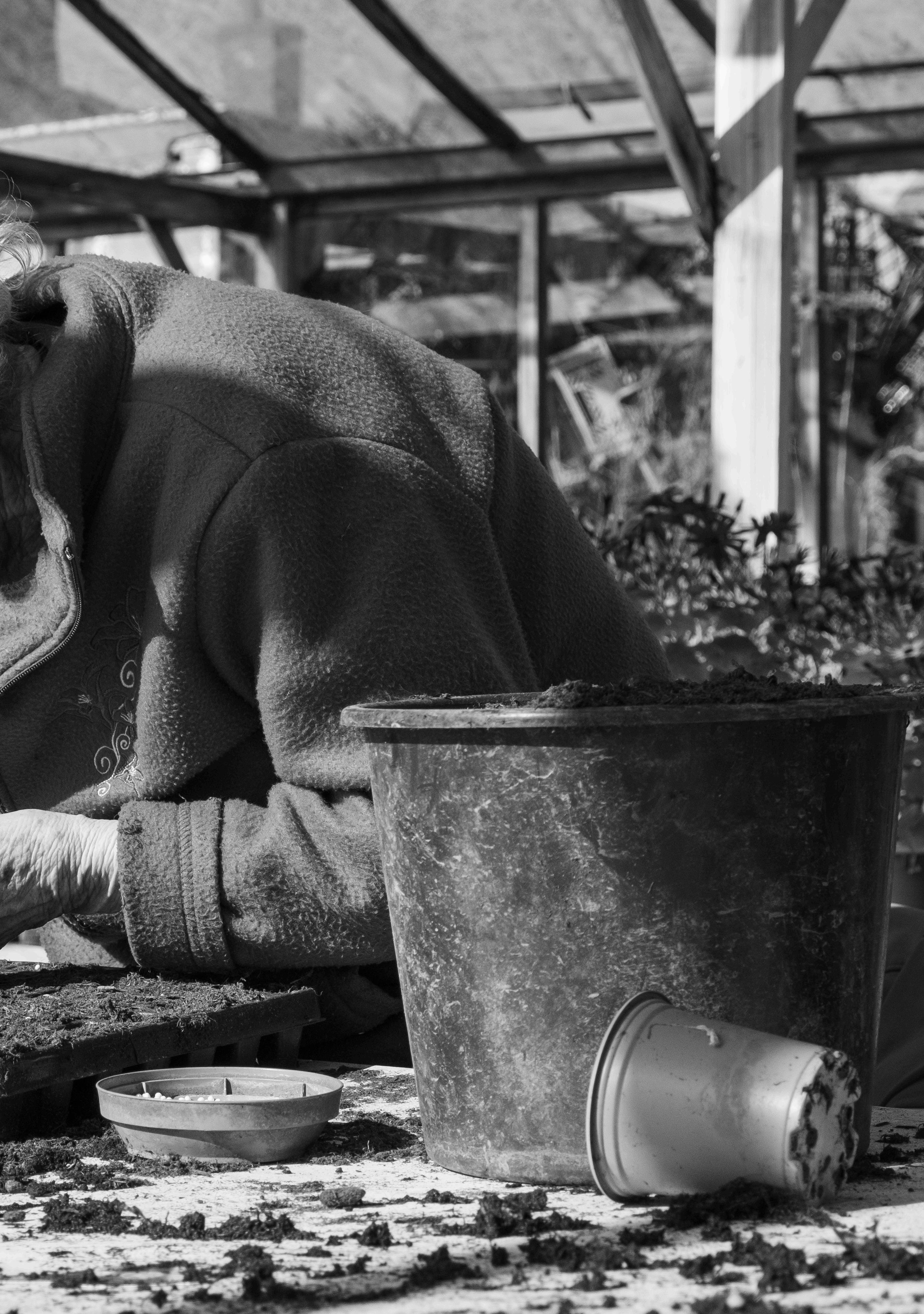
“We’re tenants. My son used to say he will do it when I’m too old. But he has said that now, no, he won’t. He thinks our landlords are, you know, it seems like they don’t really want us here but they would like it to just go desolate and then they can get what’s called brown belt and then they’ve got to try and build. As it stands at the moment they don’t want to oust us. This precise moment. No, that could change. They can do what they want.”

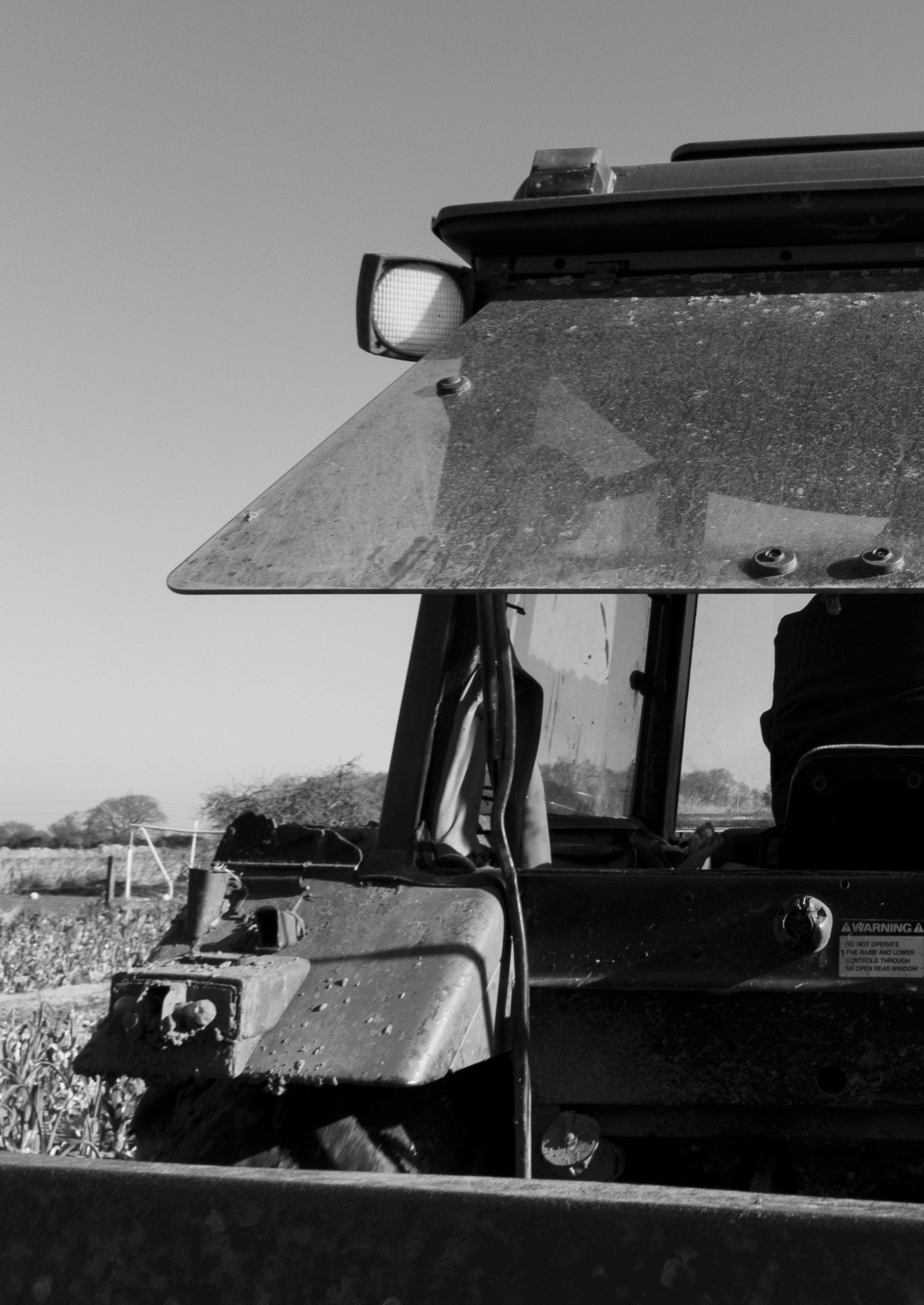
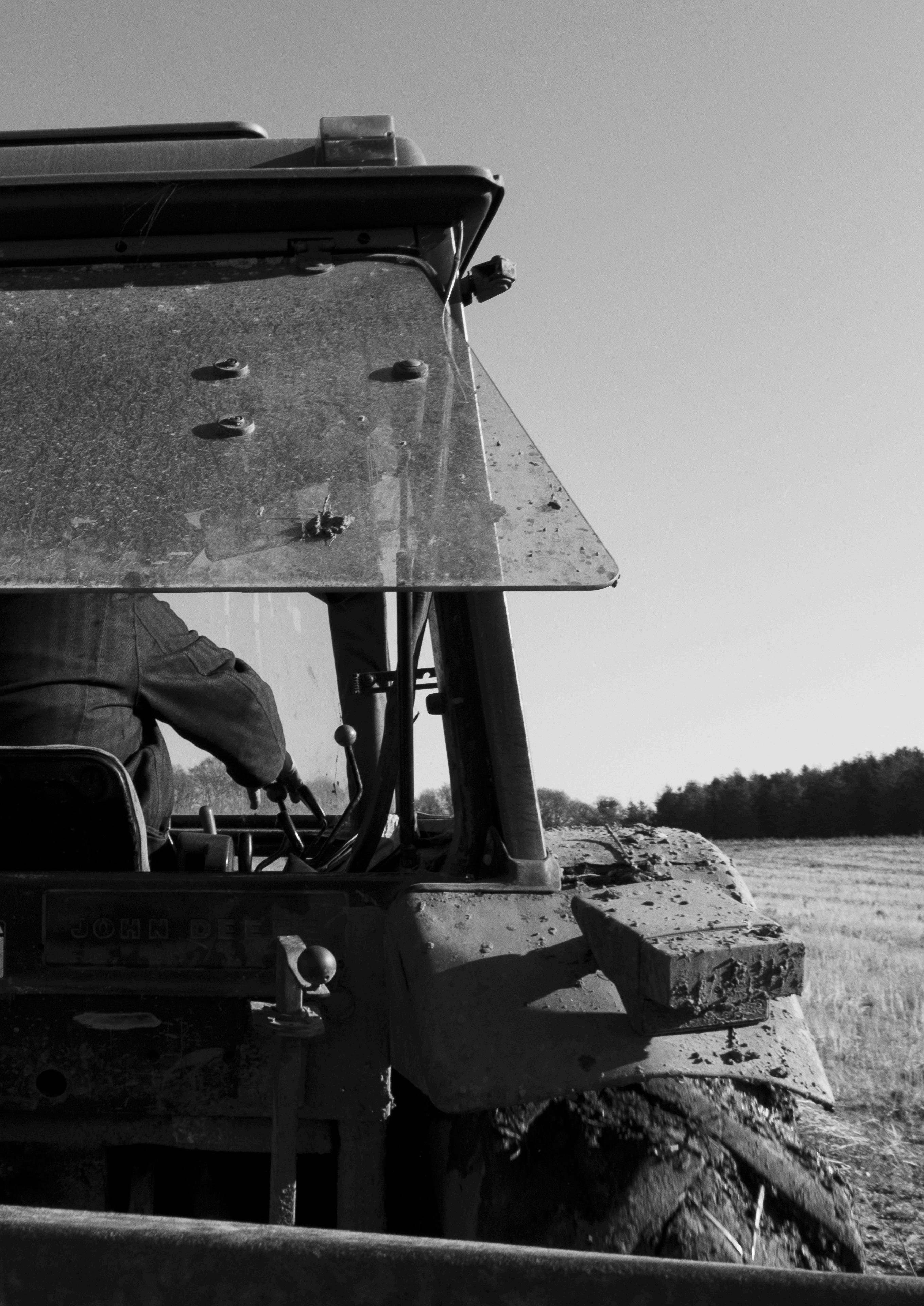
“The
last 10 years we’ve dealt more directly with the public with farmers markets and veg boxes.”
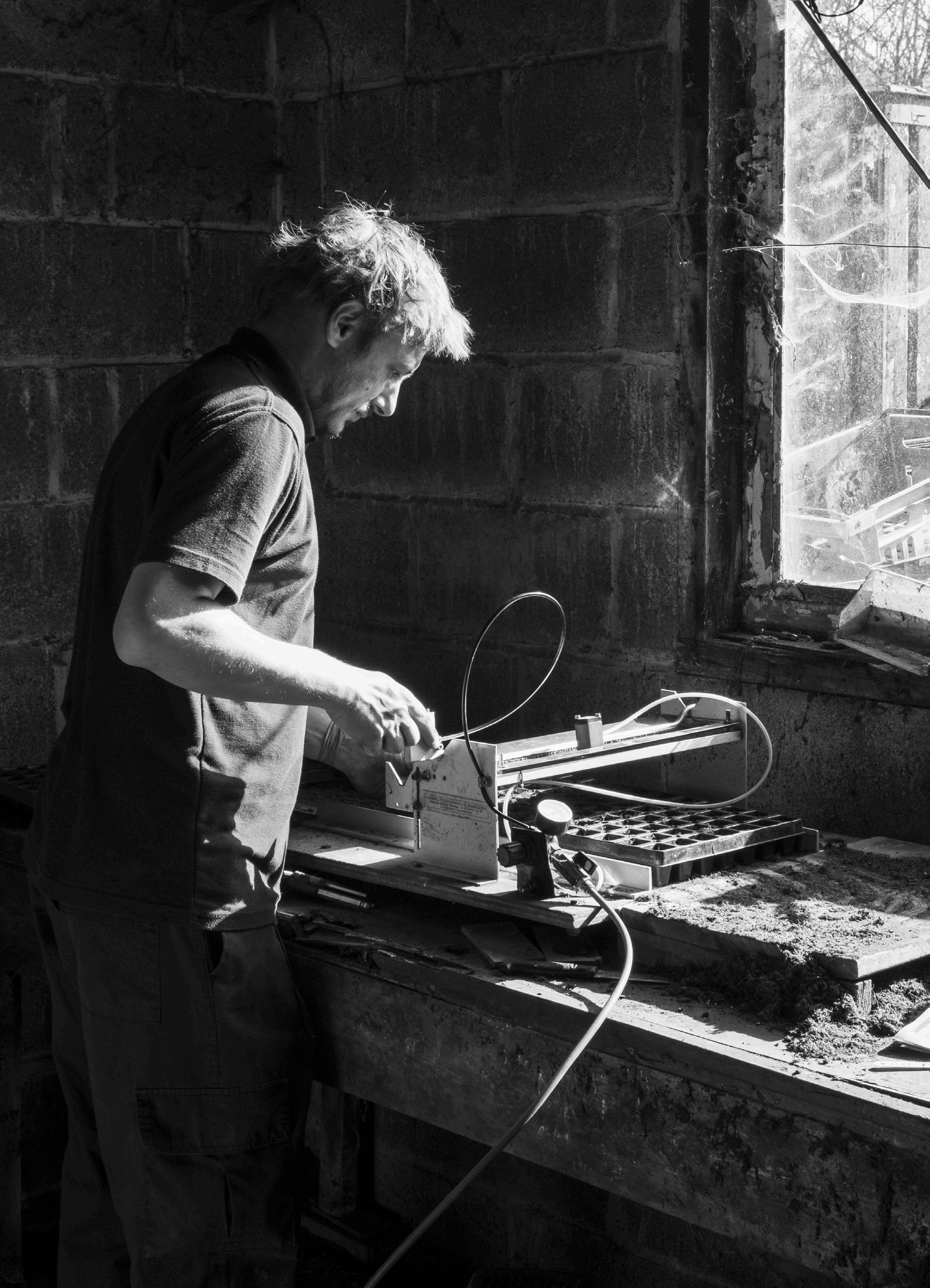


“You’d get feedback which was something we never saw before. Which is very nice. It’s not the be all and end all but it’s still great to hear when people tell you how much they’re enjoying our produce and how much they say our produce is better than what they’ve been used to in the supermarket. It’s fulfilling.”
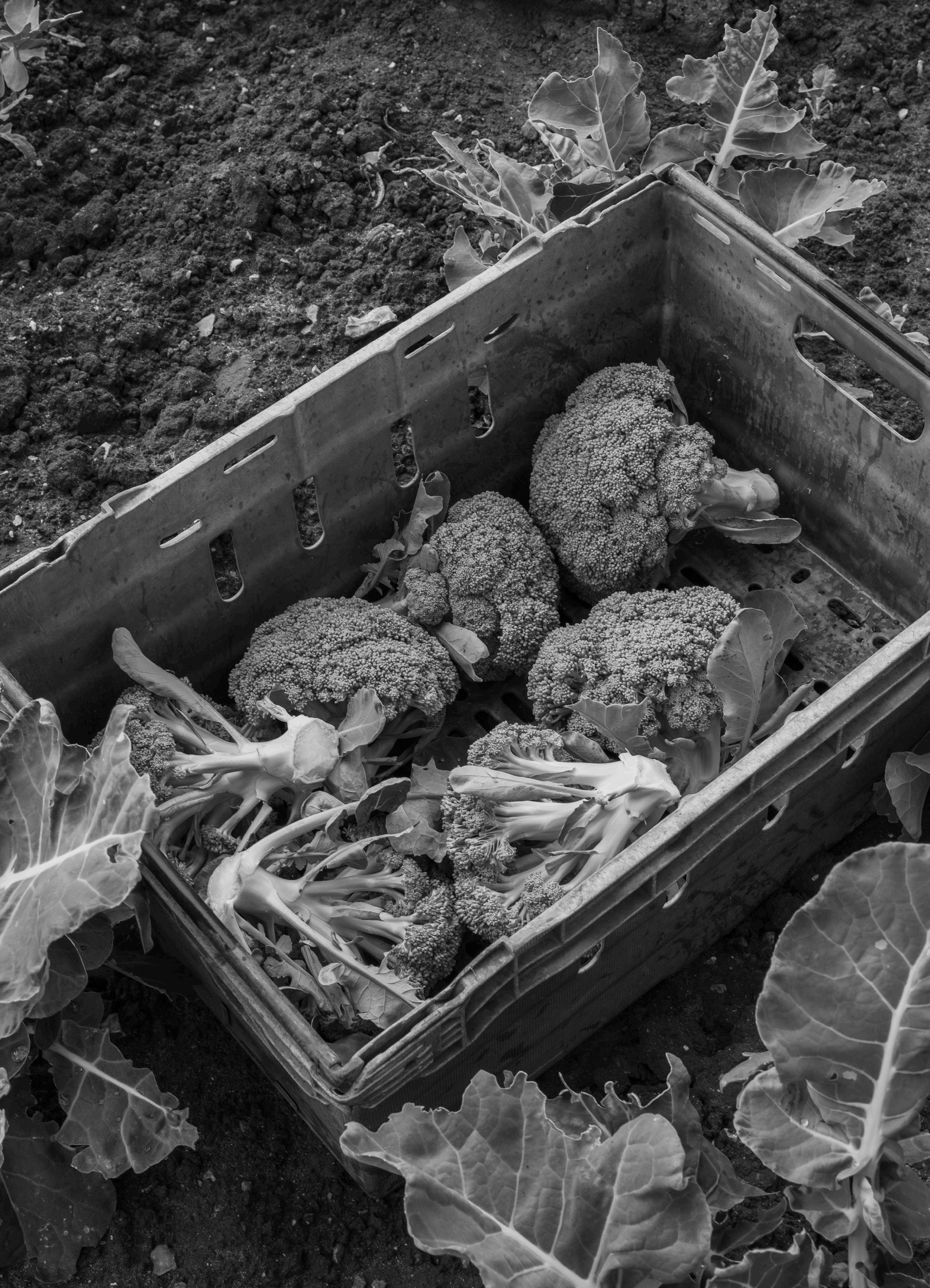
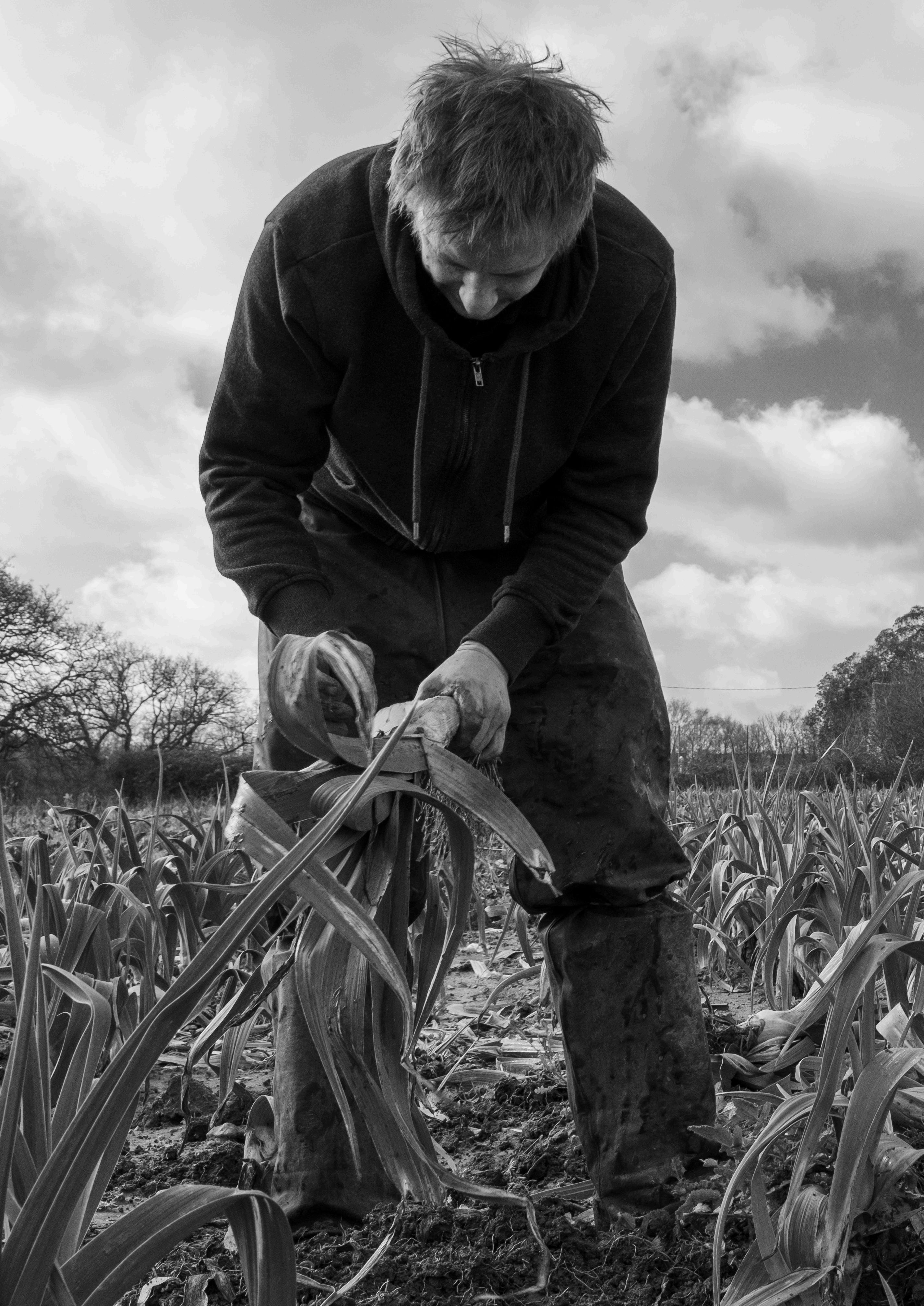

“I couldn’t do a normal job. I didn’t want a normal job. This is a way of life and I’m proud of my way of life. And like I said, to work here, where my parents and grandparents have worked, it means a lot. It’s a real tie.”



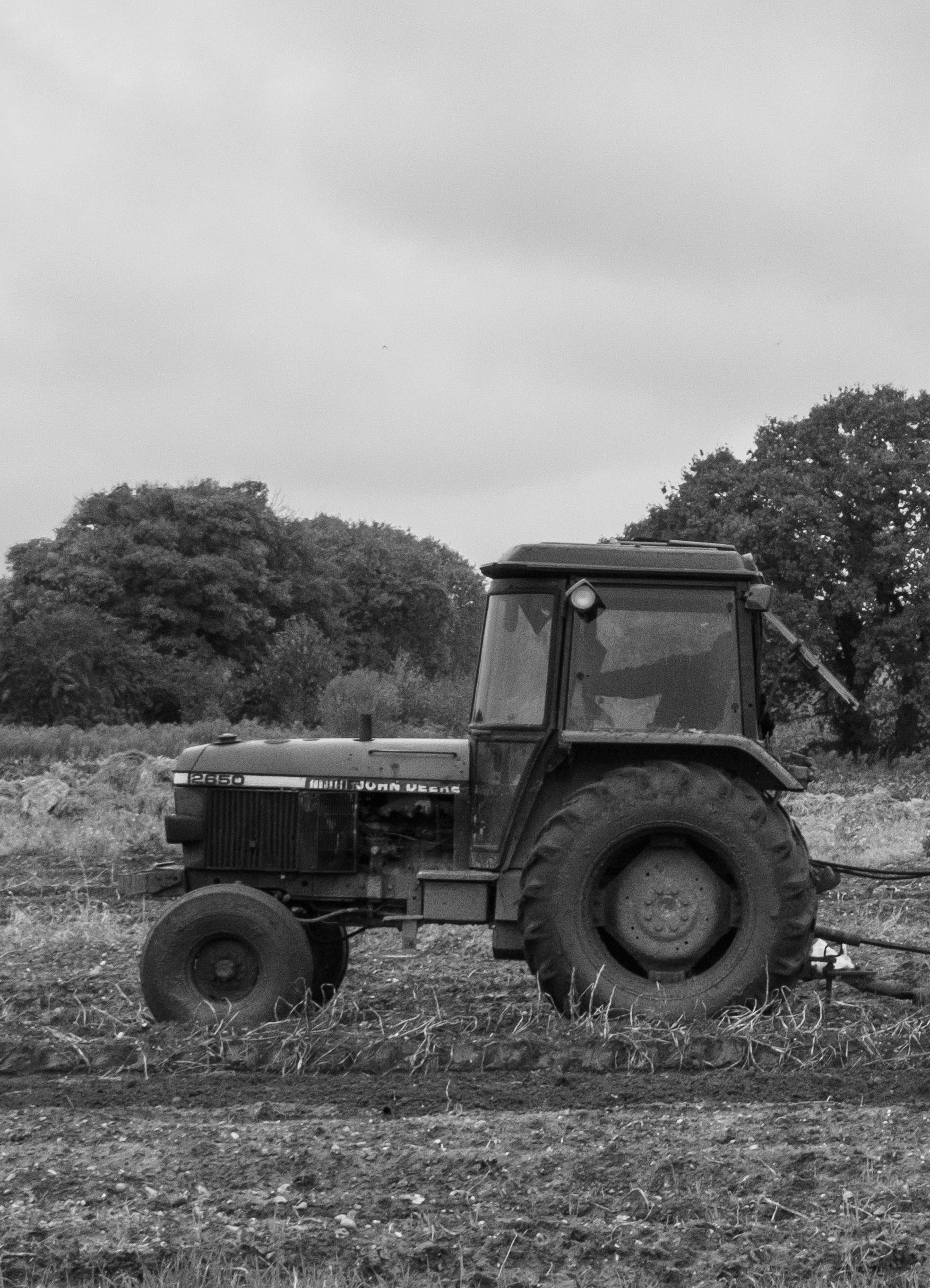

“I can’t pursue what I would like to. More time to just go and watch football and cricket. That’s what I’d like to do, but I haven’t got the time to. If I have time off, it’s to go and watch football. I try to take my wife out once a week. We go on holiday twice a year, which is rare for a farmer. My friend down the road who’s got cattle and grows corn doesn’t go on holiday. He doesn’t like holidays because he never grew up having holidays. People in agriculture don’t have holidays, we’ve got a different mindset.”
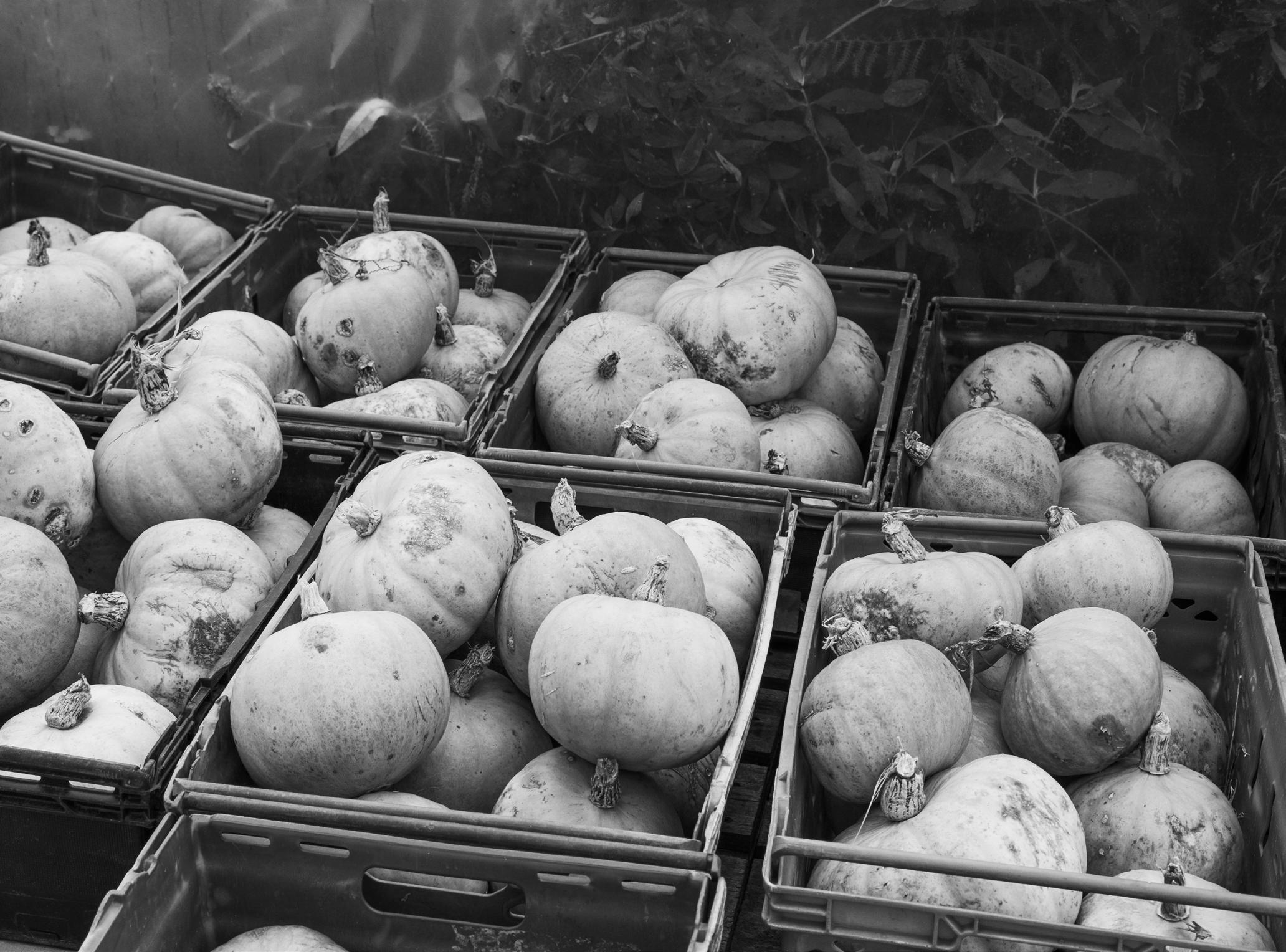


“It’s the family thing, what my family have always done, that’s the thing for me. As much as I like being outside, I probably don’t always look out. It’s wonderful to look out here. My office. Yeah, my office is something quite special. I’m very lucky.”



“You’ve got to be tough to do this kind of work. Being out in the rain when it’s going horizontal and the wind’s blowing and there’s ice on stuff, that’s hard. But, that’s what I know. I don’t know anything else.”
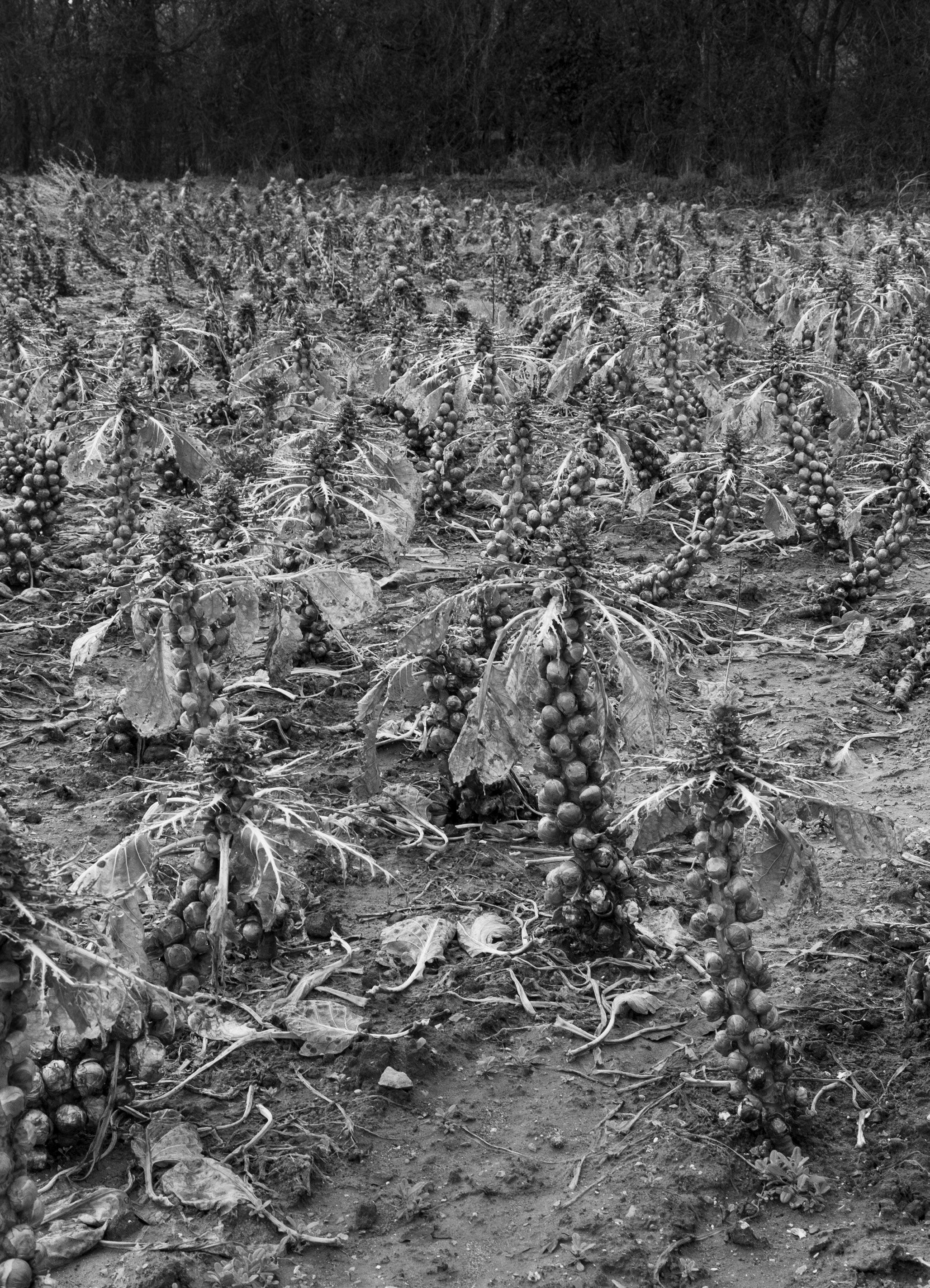
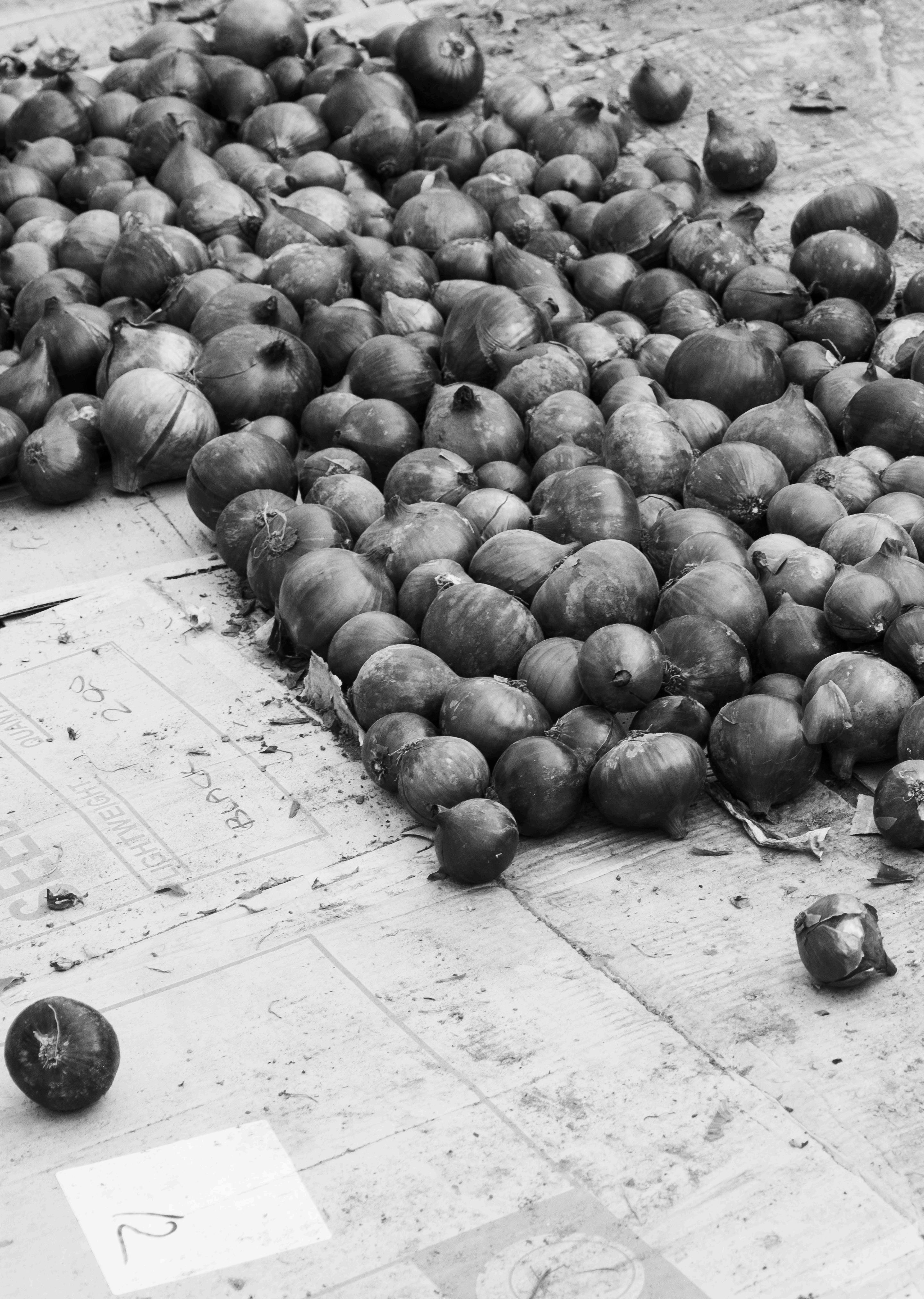

“I built this up again. But it’s been a tough few years. Very tough financially. We were going to give up 5, 6 years ago. I had to sell my house, just to keep going. My parents said they can’t put in any money. We told the landlords that we were finishing and that broke my heart. And I thought, what am I going to do? What can I do? And then I thought, I’ve got that house, I’ll sell that. But that was our security and pension.”
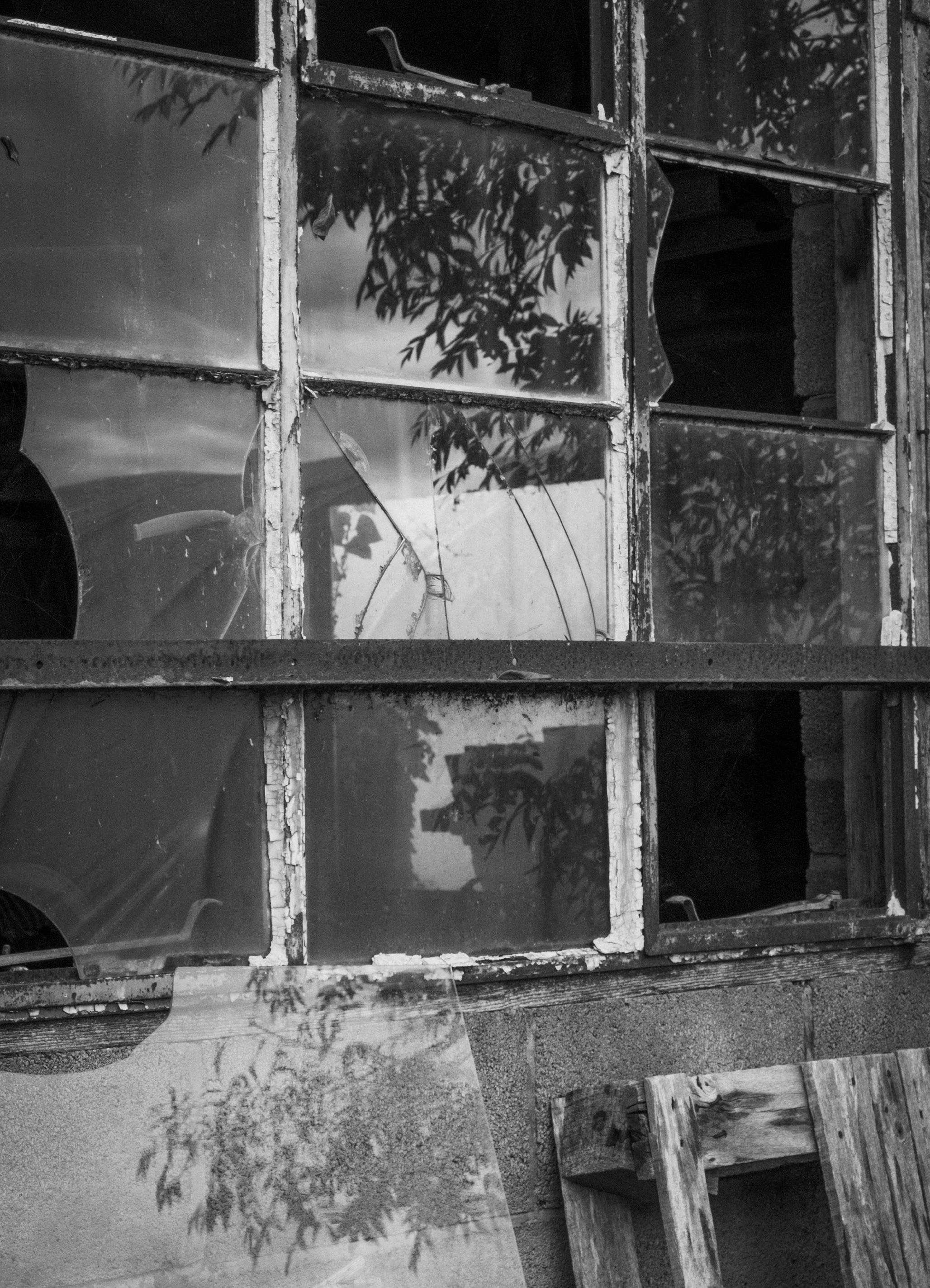
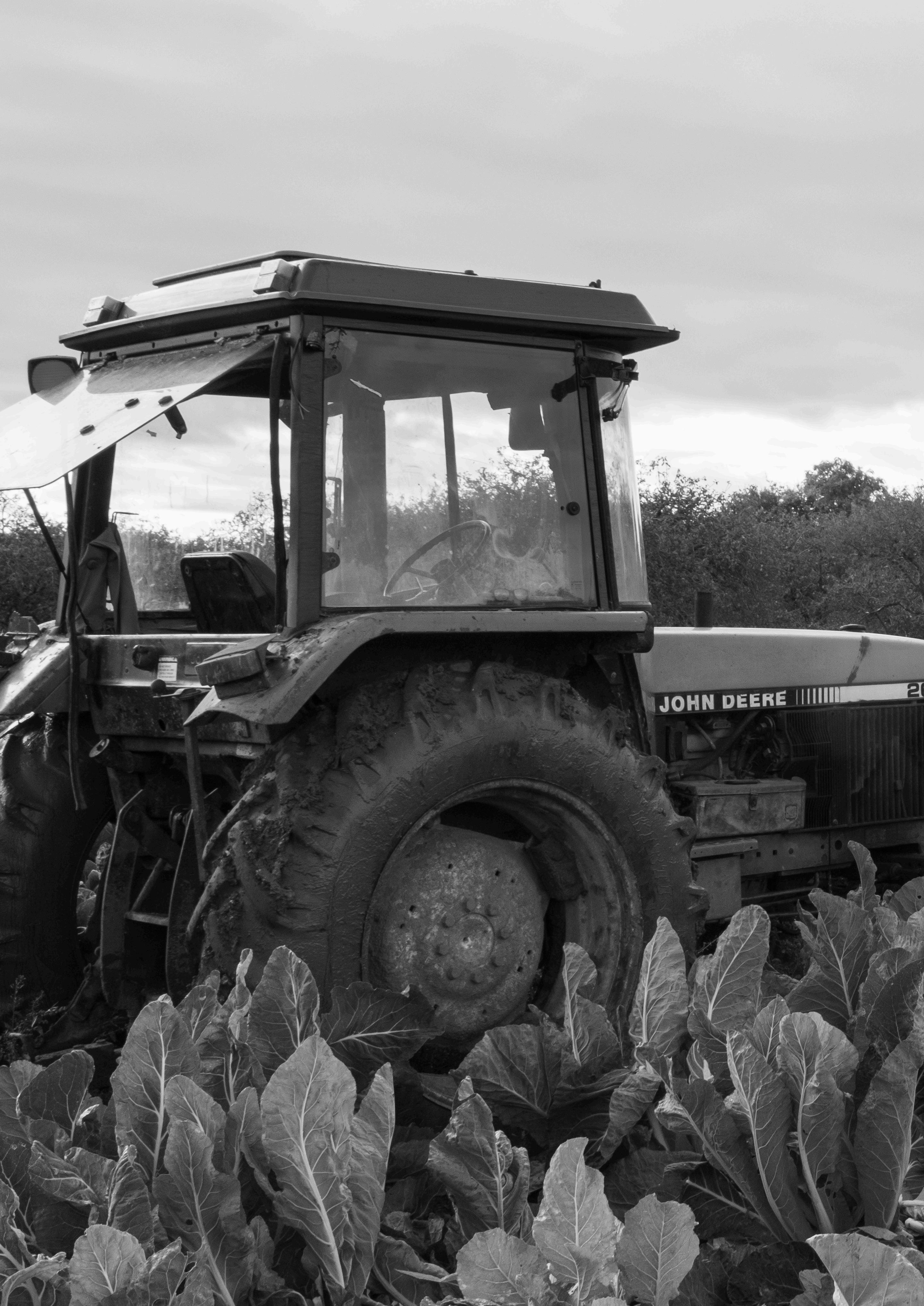

“Up to 12 years ago our business was serving the high street. My grandad would just go up through Moordown and Winton with a van. He originally had a horse and cart. There were lots of vegetable shops. So he would go up through Winton and sell his stuff. When I was a kid I would go with mum on Saturday mornings to shops a bit further afield, Southbourne and Westbourne. Then 20 years ago, I was going to Ringwood and Poole. So I was going further out because there were less and less shops. My mum kept saying, well, what are you gonna do? This is going to end. This is ending. I remember a veg shop used to tell me, in the 80s the high street had 90% of the veg trade, supermarkets only 10%. By 2010 they had 90% and the high street had 10%. So a complete turnaround in 20 years. So now we go directly to the public. If we were still getting the money we were, it wouldn’t be sustainable, the prices haven’t kept up with inflation in the last 25 years. The fact that we can charge more has meant that we can survive. We are more expensive, not everybody can buy from us, which we fully understand.”
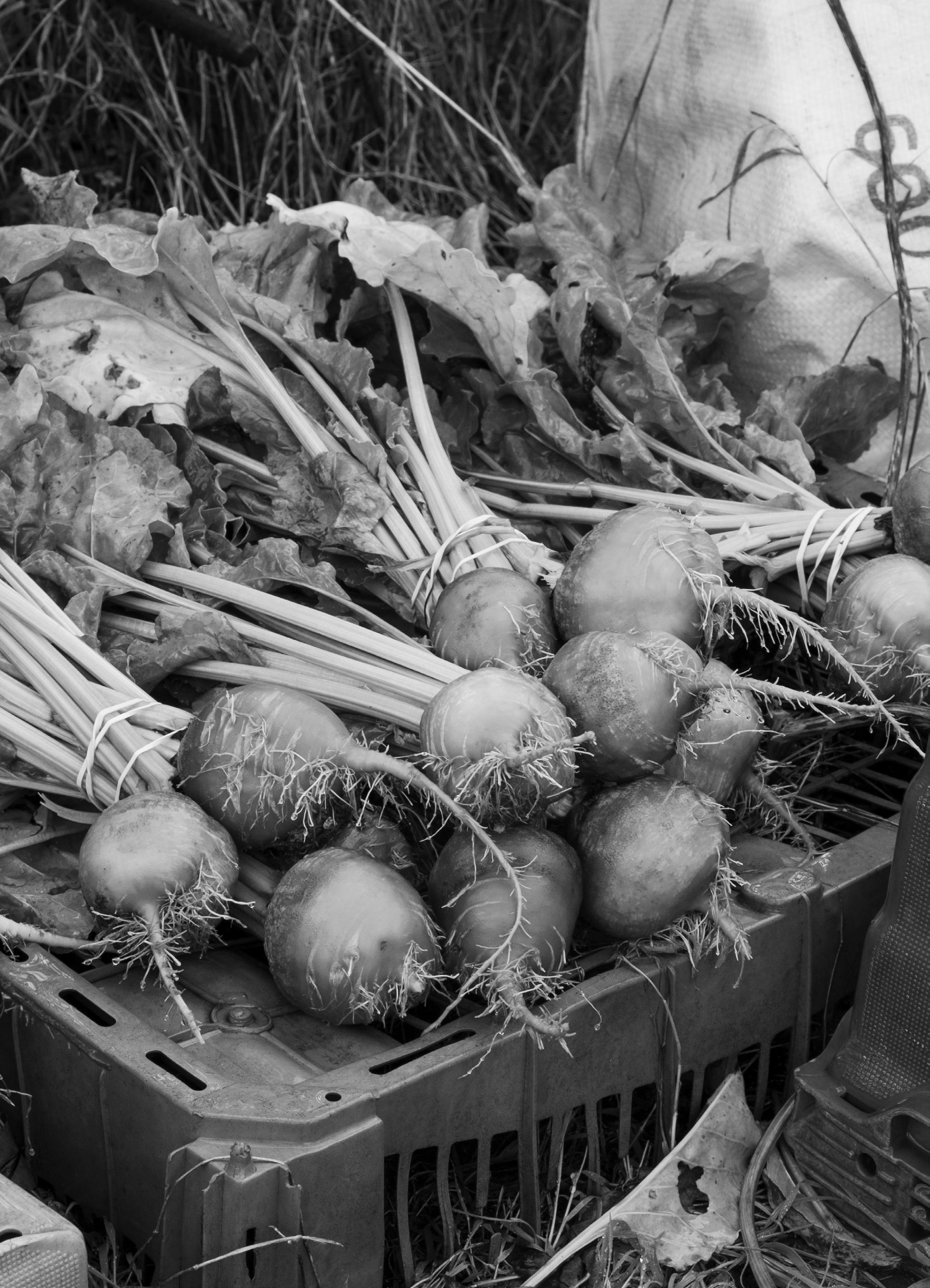
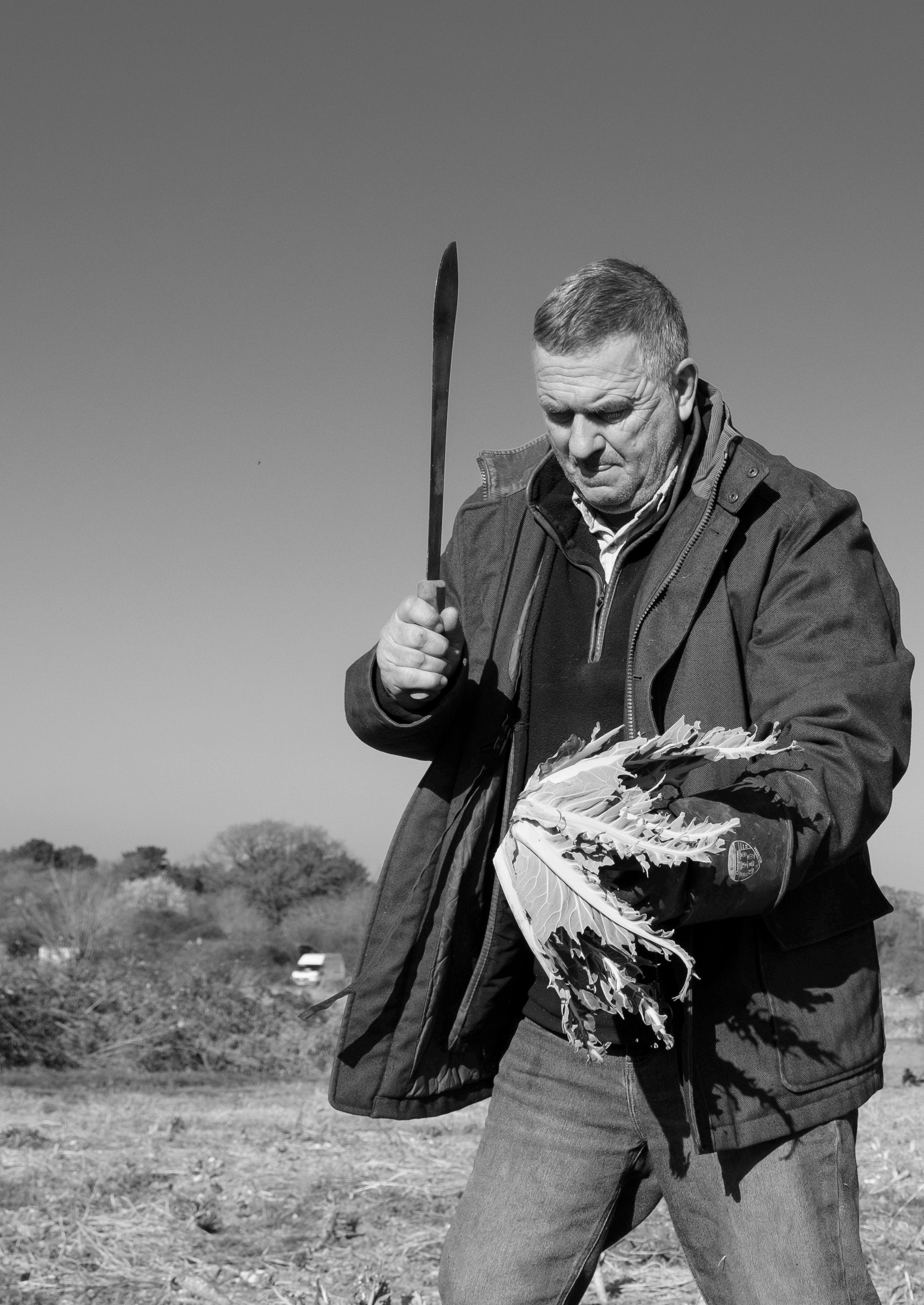

“Some people are very understanding. But, other people, it’s not for them. They’re not used to stuff looking in such a raw state. With a bit of dirt on. They’ve been spoiled by the supermarkets. Supermarkets have always demanded from the growers and producers and farmers to make everything look perfect. It goes against taste. Everybody says our vegetables just taste so different to what they’re used to. I find a lot of people from other countries who live here now say it tastes like what it does back home, not what you get in British supermarkets - taste isn’t important anymore. We’ve definitely got a product, a good product to sell.”
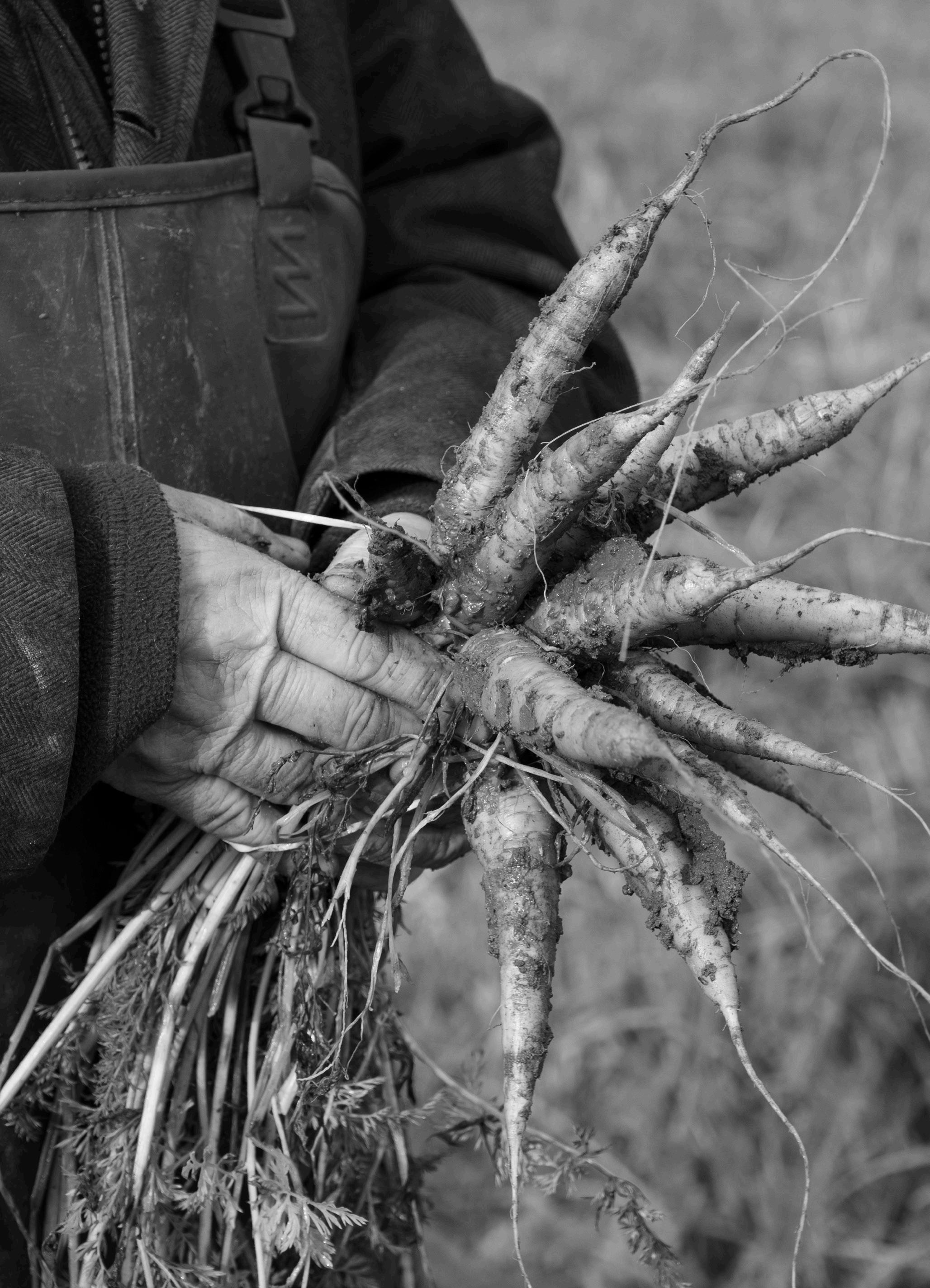

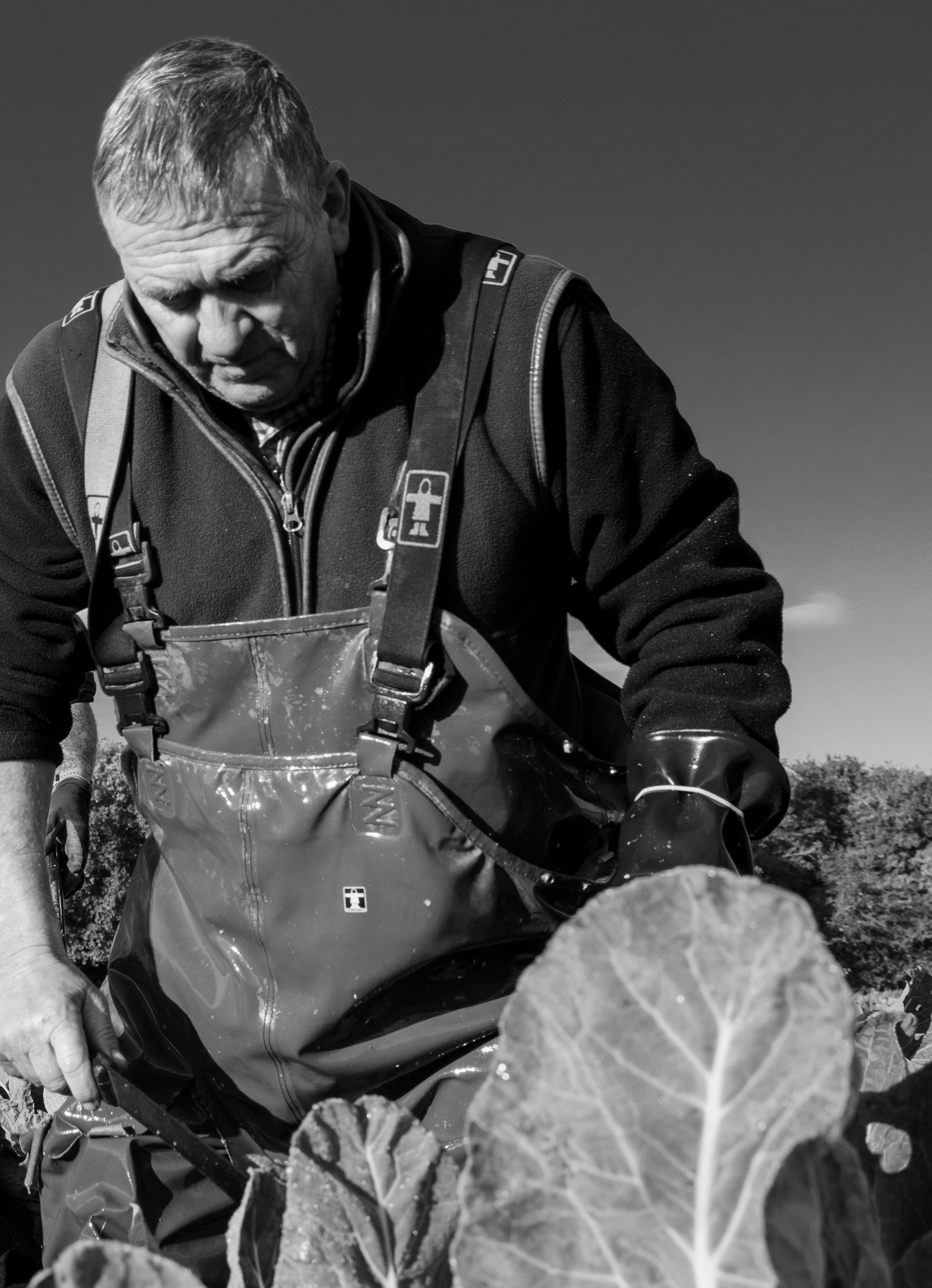
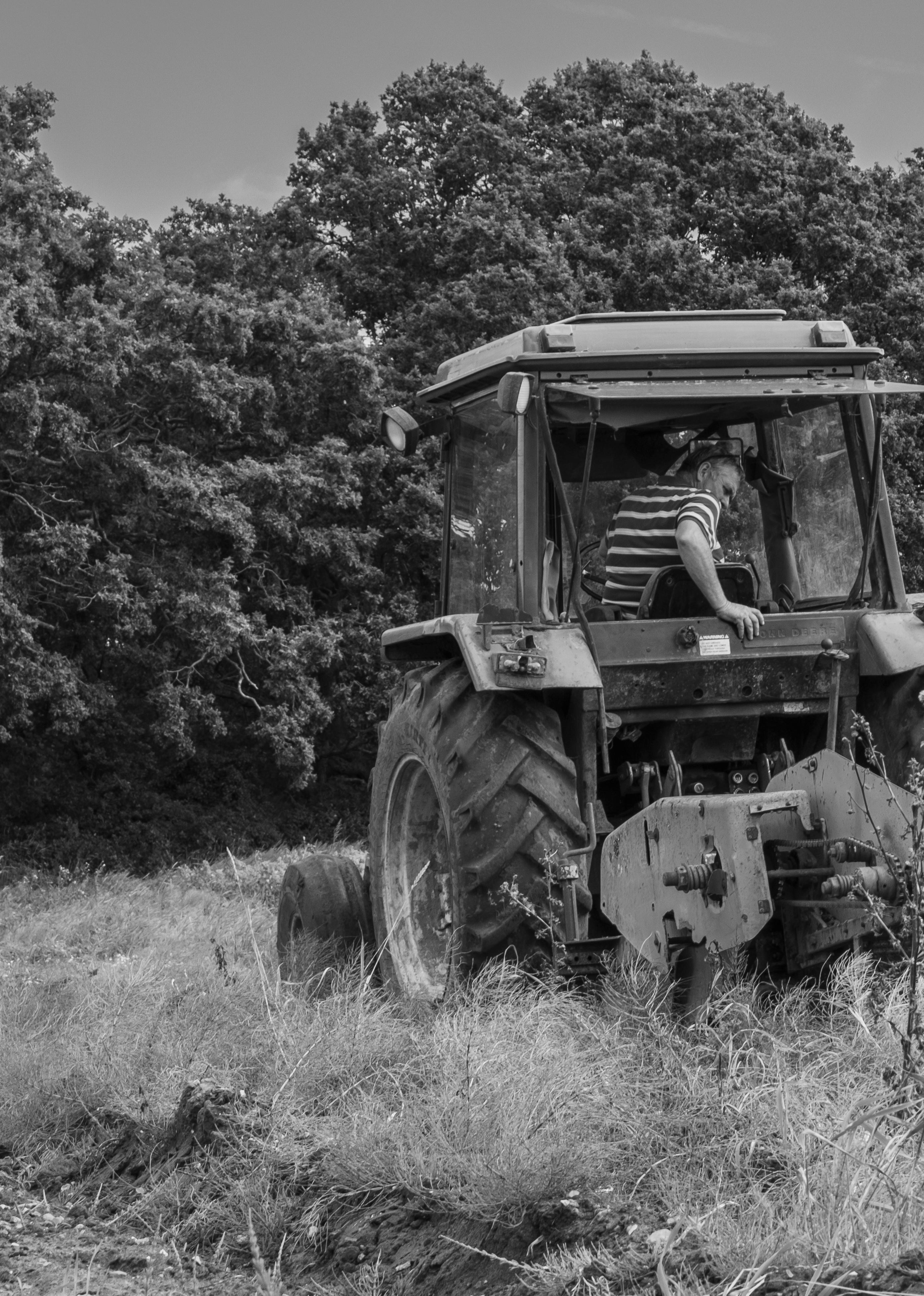
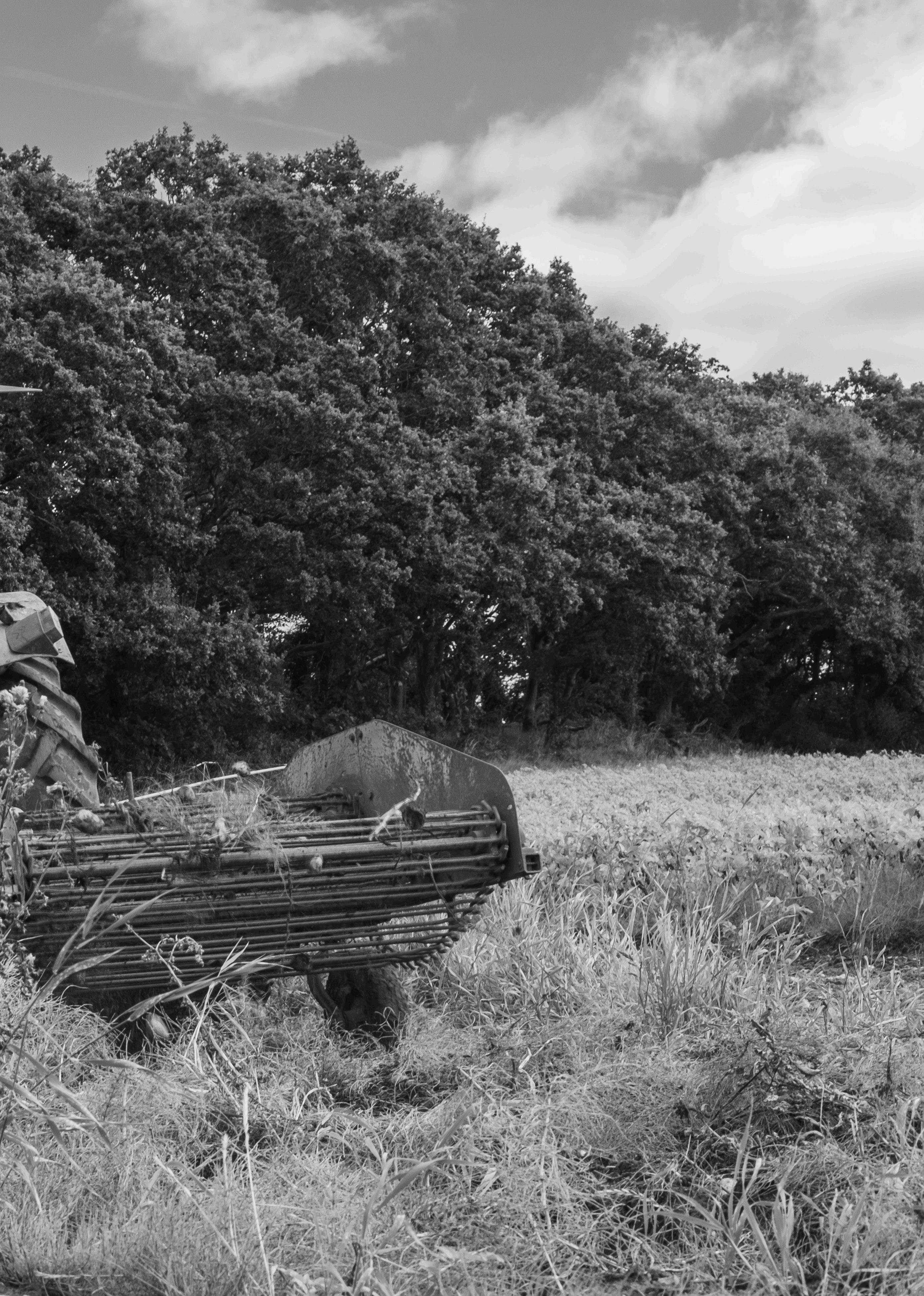
“Food’s too cheap. It’s cheaper now in real terms than it’s ever been. To what an average man’s wage is, to what it was 50 years ago. And that’s what makes it hard for us to survive.”
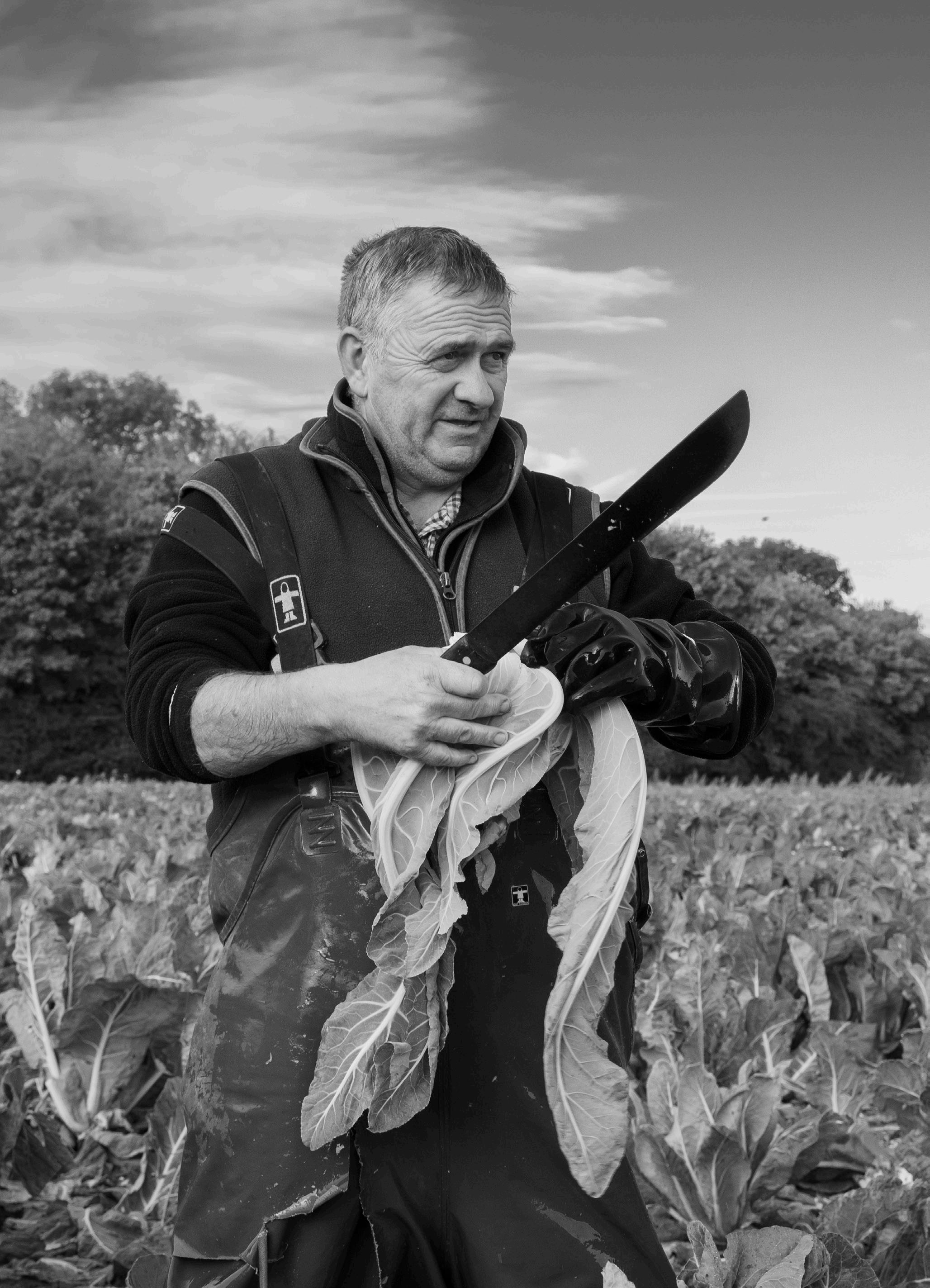

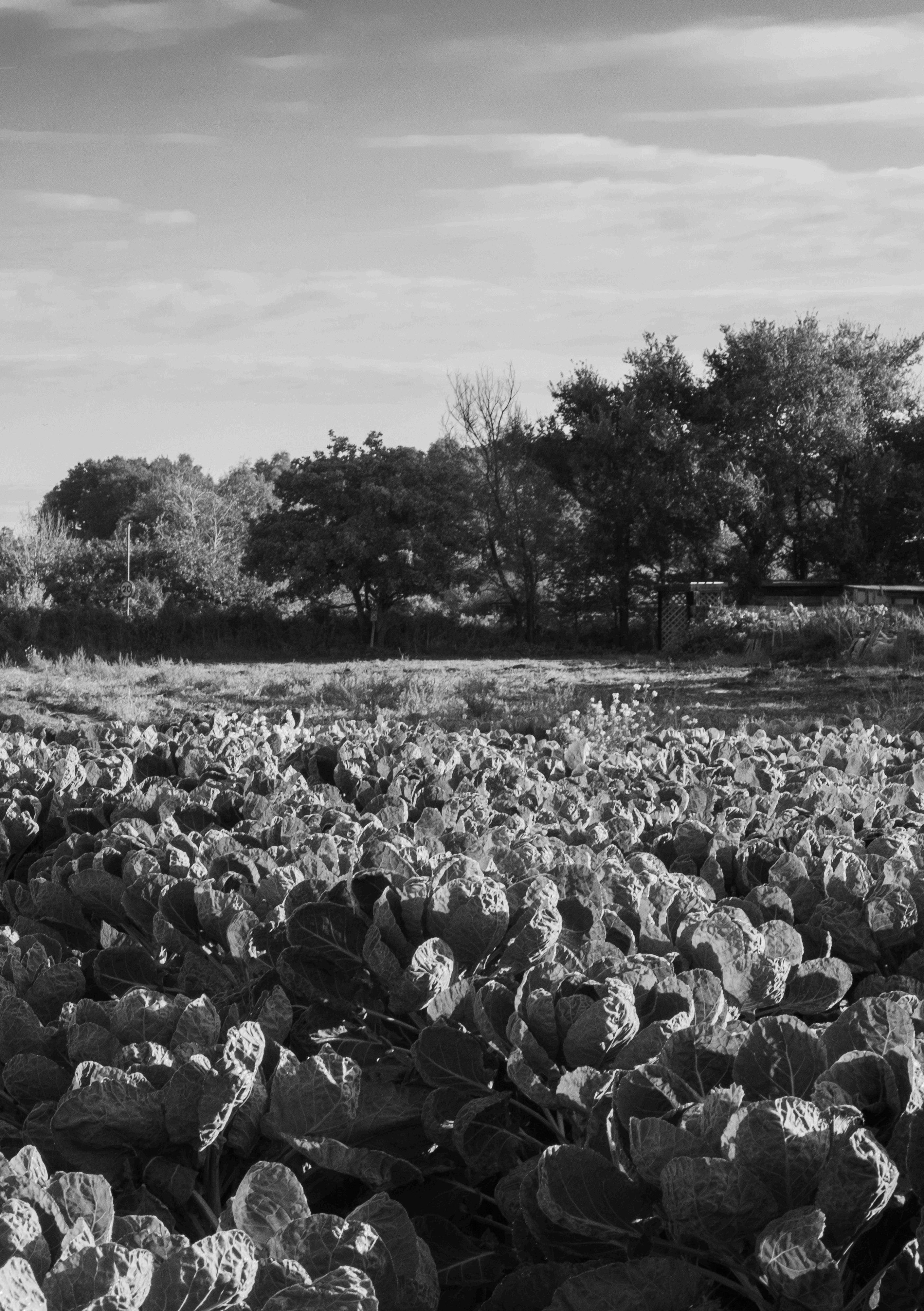
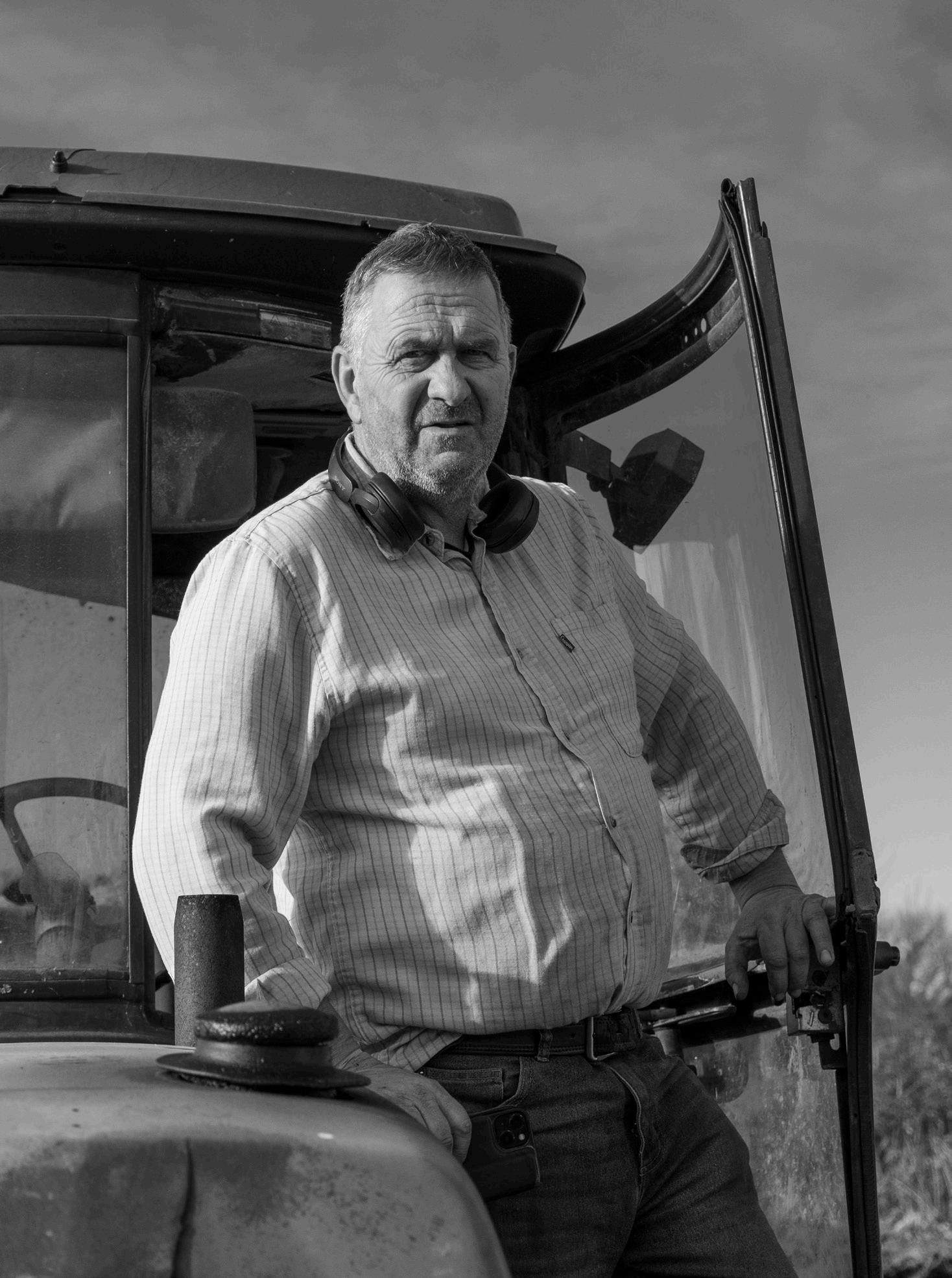
Farmer and owner of Berry Hill Farm. He’s worked on the farm for 43 years.

Jim’s father. He’s worked on the farm 54 years.

Jim’s mother She’s worked on the farm 54 years.
Acknowledgements
My sincerest gratitude to my friends and family who have supported and influenced me along the way. You bring so much light and inspiration to my life. Thank you to all of you who helped take care of Phoenix while I juggled parenting, work and my Masters, I couldn’t done it without you.
To Phoenix, thanks for being the coolest and sweetest kid I’ve ever known. You inspire me everyday and I’m so proud to be your mum.
To the tutors, mentors and photo techs at AUB, thank you for everything you’ve taught me. Your support, advice and teaching has helped me to develop and grow, and for that I will always be grateful.
To Will, thanks for your help with the edit of this book and answering my endless design questions.
To Jim, Ken, Anne and all the staff at Berry Hill farm, thank you for saying yes and allowing me to come and photograph your work. Without your openness and trust, this project wouldn’t have been possible.
